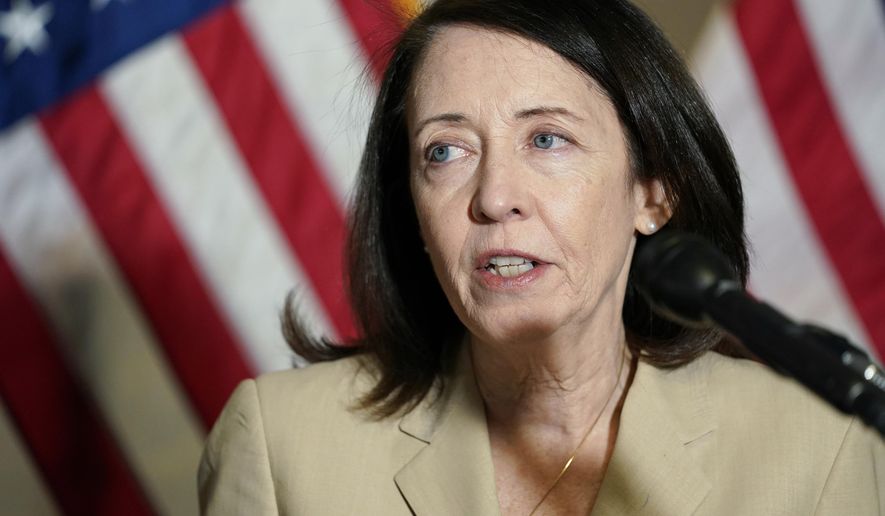NASA’s days aren’t numbered but it’s billionaires with aspirations of conquering other planets that are capturing people’s imagination and changing the trajectory of American exploration of outer space.
Congress is aware that Americans thinking about a return to the moon now picture billionaires in corporate offices leading the charge instead of NASA’s Mission Control Center, according to Sen. Maria Cantwell, Washington Democrat.
At a Senate hearing for oversight of NASA, Ms. Cantwell told NASA officials that she has witnessed a shift in people’s thinking about the government’s role in space exploration.
She said it doesn’t do the government a great deal of service.
“I think somewhere this image of what is Americans’ space exploration is it’s developing, let’s just say that. It’s just developing,” Ms. Cantwell said Wednesday at the Senate Commerce’s space and science subcommittee hearing. “I think people want to know what is NASA’s role in that; what’s our oversight role in that? I certainly don’t want to see us fail in our funding of a NASA mission here in Congress because some people think that we are incenting these other individuals and somehow that this is not a U.S. government-led mission for us to return to the moon.”
Ms. Cantwell said congressional oversight of NASA now extends to the agency’s partners in the private sector.
Billionaires such as Jeff Bezos and Elon Musk have played a large role in changing public perception. Mr. Bezos, the Amazon founder and Washington Post owner, flew into space on a rocket launched by his Blue Origin company last year. Fellow billionaire Richard Branson, the founder of Virgin Galactic, beat Mr. Bezos to the edge of space by a matter of days.
And Elon Musk, estimated to be the world’s richest man by Bloomberg’s billionaires index, has made no secret about his desire to get man to Mars. The SpaceX founder is planning to give an update on his “Starship” on Thursday, he said via Twitter, which he envisions as the “holy grail of rocketry.”
During the Senate hearing, NASA touted the commercial space sector’s growth and NASA’s role in preparing the way for business to boom on the front lines of the final frontier, particularly in the low-earth orbit (LEO) realm.
“In encouraging commercial low-earth orbit development, NASA has invested in the development of commercial space transportation and today purchases services from U.S. companies for the resupply of the International Space Station and for crew transportation services,” NASA’s James Free said at the hearing. “We are now laying the groundwork for future commercial space stations through the commercial LEO destination, in our CLDs program. And it’s NASA’s goal to be one of the many customers of commercial LEO destination services.”
Mr. Free said more than 20 commercial facilities are already operating aboard the International Space Station, the habitable satellite orbiting around the Earth.
• Ryan Lovelace can be reached at rlovelace@washingtontimes.com.




Please read our comment policy before commenting.